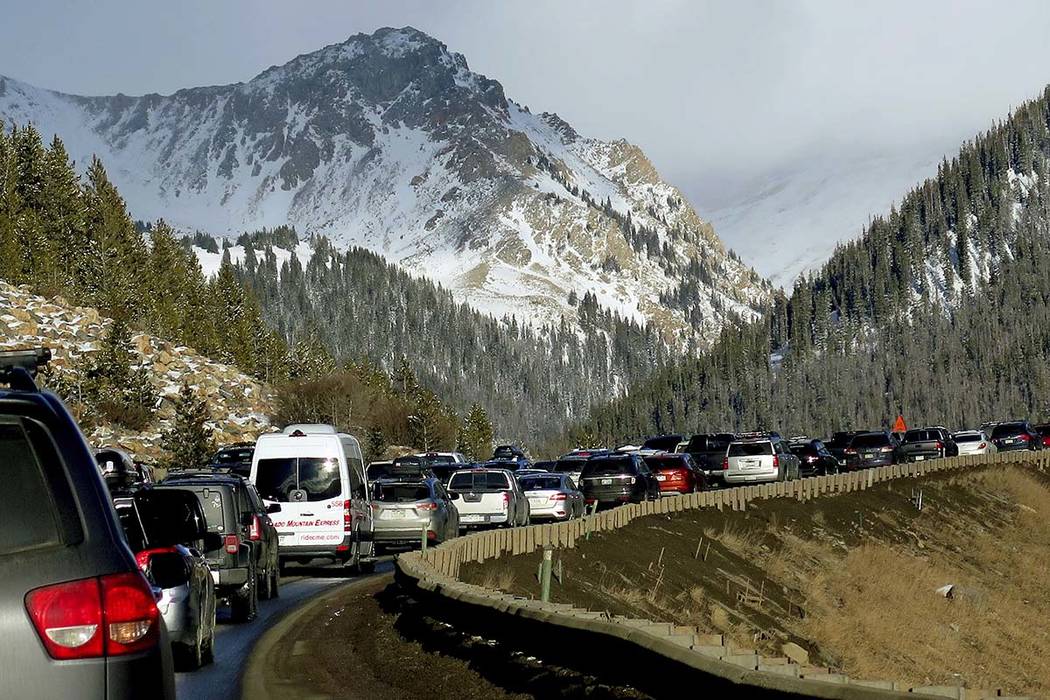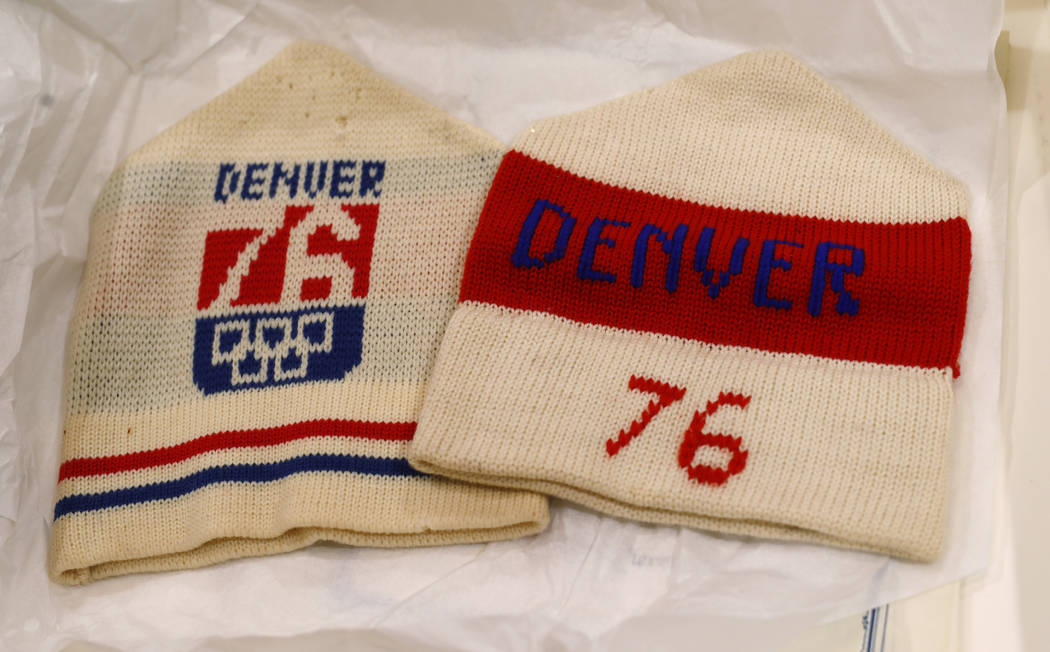Denver considers making Olympic bid 40 years after saying no
DENVER — It promised ample snow and sunny weather on a normally bare, rocky peak easily accessible by “super highway,” thousands more hotel rooms than existed and a cross-country ski course that looked good on paper but would have cut through some people’s backyards.
The airbrushed pitch worked, but after Denver won a bid to host the 1976 Winter Olympics, its plan unraveled amid questions about the environmental impact, ballooning costs and logistics of hosting such a big event in a quickly growing state.
Now, over four decades after Denver became the only city to withdraw as an Olympic host after winning a bid, it is exploring whether to try again after many cities have decided it’s just not worth it.
The city is again growing, with low unemployment and a booming economy, and this time has a bigger airport, light rail, more hotels, seven professional sports teams and multiple stadiums. But the highway touted in ‘76 — Interstate 70, which connects Denver to the Rockies — has essentially remained the same. As the population of outdoor-loving Colorado has grown, the largely four-lane route is often gridlocked on weekends.
Meanwhile, the city also is trying to lure Amazon to open its second headquarters in the metro area, which already has many worried about growth, tax breaks and the rising cost of living.
The Olympic exploratory committee convened by Mayor Michael Hancock — which includes leaders of companies like Vail Resorts and Liberty Global, along with former Denver Broncos quarterback Peyton Manning and ex-Denver Nugget Chauncey Billups — is mulling a privately funded games, estimated to cost $2 billion, without any mega projects. Organizers say the strategy could even leave the state with a surplus to fund I-70 improvements or other work.
Denver already faces stiff competition from Salt Lake City, which became the first U.S. city to announce its plans to bid for the 2030 Winter Olympics this month. Salt Lake said it could host without losing money thanks to existing venues and its expertise in putting on the 2002 Olympics. Reno, Nevada, is also considering a bid.
While some worry the Olympics will distract Denver from urgent problems like affordable housing and transportation, committee members stress that the games won’t take money from those priorities and could potentially net $100 million to $200 million thanks to proceeds from ticket sales, sponsorships and merchandise.
The panel had been in a rush to decide in March whether to pursue the 2026 or 2030 games but is now focused on 2030. The U.S. Olympic Committee announced in Pyeongchang that it will not pursue a 2026 bid unless the International Olympic Committee decides to award bids for both years at once. Denver’s group now plans to make a recommendation to the mayor and governor by late April or early May, although chairman Rob Cohen said the exploratory committee would readjust its timeline if a dual bid becomes a possibility.
The International Olympic Committee is encouraging fewer billion-dollar projects and more facilities already in place after the lavish 2014 Olympics in Sochi. The three venues that would need to be built for a Denver-based Olympics — for Nordic skiing, ski jumping, bobsledding, luge and skeleton — would be temporary structures, said Cohen, CEO of insurance and wealth management company IMA Financial Group. The events could be spread around the state or concentrated along the Front Range.
The exploratory committee has been criticized for its lack of grassroots representation for meeting behind closed doors, but it recently invited community activists to serve on advisory groups and held online meetings with the public.
Architect Michael Wenham pondered the prospect of a Denver Olympics recently while at a park near downtown, noting it could be interesting to come up with environmentally friendly ways to host the Olympics. But he reconsidered when he thought about I-70 traffic. He can’t remember the last time he headed to the mountains to snowboard on a weekend because of its traffic jams.
“High-speed buses with their own lane. That is the only way they’re going to be able to do it,” Wenham said.
Cohen said buses would be one possibility for moving people to the mountains quickly during the Olympics, as would giving truckers incentives to bypass I-70. He said some of the surplus could be used to improve the interstate or on another project that would benefit the state long-term, and noted the federal government helped pay to fix highways for Salt Lake City’s 2002 Games.
In the years since Denver said no thanks, more cities have become wary of pursuing the Olympics in the face of public opposition and financial concerns.
Innsbruck, Austria, which hosted the 1976 Games after Denver backed out, decided against pursuing a 2026 bid when its promise to organize low-cost and sustainable games failed to convince residents. Other cities that have considered but dropped Olympic aspirations in recent years include St. Moritz and Davos, Switzerland, Krakow, Poland and Oslo, Norway.
Former Colorado Gov. Dick Lamm, whose political career took off after he helped fight the 1976 Olympics, is trying to keep an open mind about Denver’s latest go-around. The committee studying the issue includes savvy people with a track record of successful economic development projects, he said.
But even if Denver could pull it off, he’s not sure what’s in it for the city.
Lamm thinks officials tend to get seduced by the Olympics’ glamour when they could spend their attention on the mundane things that support the economy, such as finding money for education and roads. That takes more campaigning and alliance-making in Colorado because of its strict tax and spending limits, which require voters to approve any tax hikes.
“There’s many opportunities to make this a better state, and I don’t see how the Olympics fit into that,” he said.

























